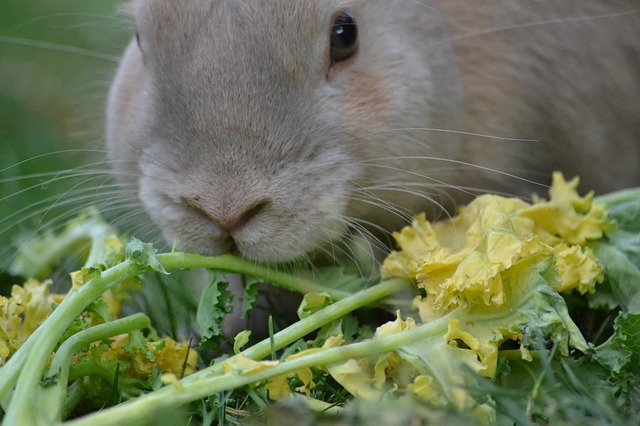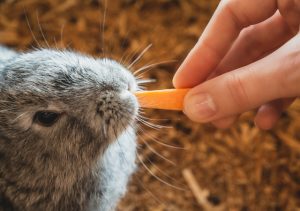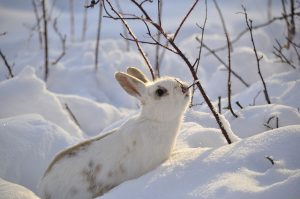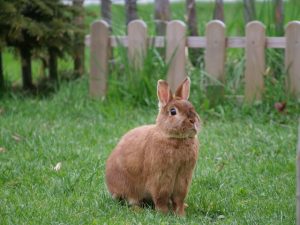In general, domesticated rabbits have the same feeding instincts as their brothers still living into the wild. But that doesn't mean that your rabbit will always choose something good and healthy when it comes to dinner. Especially since he's not in his natural environment. So if your pet rabbit doesn't know what to eat that's also good for him, the question arises: Do you know what to feed your rabbit?
Rabbits have very sensitive digestive systems, which makes them prone to various tummy disorders and sometimes even serious illnesses if their meal regime isn't a proper one. This is exactly why you need to know what to feed your rabbit.
What to Feed Your Rabbit
A healthy rabbit's digestive system requires a lot of fiber content for it to function properly. While there are a lot of foods out there which have fiber content, that may not suffice to your bun, who requires that a great part of his food to be hay. Sure, you can add pellets and vegetables to your bun's diet, but that only to balance the main part of his diet.
There's a reason why rabbits chew on a lot of grass and hay when they're in their natural element. It's because the fiber contained in grass hays stimulates intestinal function and helps prevent hairballs while also keeping their teeth trimmed.
In general, keeping a balanced diet comprised of hay, pellets and vegetables, should be enough for your bunny. Anything else that your rabbit might like to eat, provided it's not toxic or harmful to him, should only be fed as an occasional treat and not as a part of his main diet. It's equally important to limit his pellet intake while providing plenty of hay at all times and enough fresh vegetables.
Hay
Since a rabbit's diet should mainly be comprised of fiber, hay should be readily available to your bun all the time. Ok, hay is important, but what kind of hay should I choose? For a mature rabbit, grass hays like timothy or oat hay are the best options. For young bunnies, alfalfa hay is the better option because it contains less fiber and a lot more calcium and protein, which both aid young buns to grow. After the babies grow to six or seven months of age, it's recommended to gradually switch over to grass hays for the higher fiber content.
Depending on the rabbit, some hays are preferred over others, and some buns will eat more pellets rather than hay if given the opportunity. If your bun doesn't eat much hay in the beginning, it's important to reduce the amount of pellets and add more fresh hay a few times a day to make him switch towards the hay when hungry.
In the case that your rabbit prefers alfalfa hay more, you should apply the same technique described in the paragraph above. Gradually decrease the alfalfa hay amount while increasing the grass hays, but keep them mixed together until your bun starts to eat more of the latter.
Pellets
Pellets are not a natural option for rabbits into the wild, therefore you shouldn't feed them to your bun as the main part of his diet. While they're not essentially harmful, the problem with pellets resides in the fact that they were created for commercial rabbit production, so they're very high in calories. The main consequence of a pet rabbit feeding exclusively on pellets is obesity and other health problems.
We recommend feeding your pet rabbit pellets, because they are rich in nutrients, but you should keep them as a small part of their nutrition and try to go for fresh vegetables and grass hays more than pellets.
Should you decide to stick with pellets as part of your rabbit's nutrition, look for good, quality ones. Some specialists recommend to choose pellets that have around 20-25% fiber and 14% protein, with less than 1% calcium for a pet rabbit. The amount to be fed should be calculated depending on the weight of the rabbit. Baby rabbits should have pellets available at all times, reducing them to ½ cup per 2-3 kilograms (6 lbs) of body weight when they're around the age of six months.
Adult rabbits should be fed around ¼ cup of pellets per day for a 2-3 kg (5-7 lbs) rabbit, ½ cup for a 3-5 kg (8-10 lbs) and ¾ cup for a 5-7 kg (11-15 lbs) rabbit.
Veggies
Vegetables should consist a large part of your rabbit's diet, along with grass hays. Veggies are naturally available for every wild rabbit, so it's a good option for domestic ones as well.
For a balanced diet, it's important to feed them a variety of fresh vegetables every day, such as carrots, parsley, broccoli, endive, romaine lettuce, broccoli, collard greens and dandelion greens. You can also feed your rabbit kale and spinach, but due to their high oxalates content, you should limit the amount.
If making the switch from pellets to vegetables, you should gradually introduce a new vegetable into your rabbit diet to allow his stomach to get used to the change.
Also important to know is that cauliflower, potatoes, beans and cabbage should be avoided, as they are known to cause troubles. Iceberg lettuce is also one of the no-no's, as it can cause diarrhea while having no nutritional value whatsoever.
Treats
While some rabbits might like them a lot, treats are not the best foods to feed to your bun. The commercial treats sold in stores may sometimes cause digestive problems to rabbits because they are high in sugars and carbohydrates. A better alternative to rabbit treats found in pet stores are fruits. A little bit of fresh fruits as a daily treat is in general ok and shouldn't cause any troubles to your bun. Apple and willow tree twigs are as well considered a good rabbit treat.






